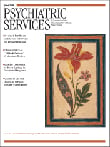Health Security for All: Dreams of Universal Health Care in America
Among the industrialized nations, the United States is the only one that does not guarantee all its citizens access to basic health care even though it leads the world in total health care expenditures. Nor does the nation rank especially well in such indicators as mortality or longevity. More than 40 million Americans lack health insurance, and millions more are underinsured. Individuals without adequate insurance have higher disability and mortality rates and often face bankruptcy because of medical bills.
Paradoxically—according to Alan Derickson, a professor of history at Pennsylvania State University and author of two books dealing with workers' health—Americans of all political persuasions have long been committed to the ideal of universal access. In Health Security for All he traces the many ways this ideal has been articulated and describes plans of action offered during the past century. Equally important, he provides an explanation for the failure to translate this ideal into reality as well as the roles of race and class.
Three themes have shaped the argument on behalf of universal health care in 20th-century America. The first emphasizes the moral obligation to help other suffering persons. The second reflects the concept of efficiency; access to health care would create a more productive workforce. The third is based on rights; full citizenship includes access to essential medical services. The significance of each has shifted as societal values changed over time.
The history of the debate over universal health care is hardly an inspiring one. In the early 20th-century concern with the problems of poverty and sickness led some to advocate social insurance to protect lower-paid workers. This approach omitted a majority of Americans and hence drew little support. During the 1920s the growing faith in scientific medicine led to an emphasis on universal health care for all. Members of the biomedical community, including the American Medical Association, were supportive. By the 1930s the notion of a social right to health care became more pronounced. But the advent of the Cold War resulted in the identification of national health insurance with subversion.
The growth of employment-based insurance benefits also tended to weaken efforts to adopt universal access and strengthen those who favored a voluntary system. The ideal of universality was further undermined by the passage of Medicare and Medicaid in 1965. And during the past three decades of the 20th century, rising costs began to undermine private insurance. Moreover, a wide chasm remained between those demanding a revolutionary transformation that included universal access and a comprehensive package of benefits and those in favor of an incrementalist approach.
At the close of the book, Derickson argues that the failure of several reform campaigns that relied on elite expertise illustrates "the imperative need to build a mass movement among the uninsured to reframe the policy debate and the political contest." Given the current political environment and the proliferation of interest groups each with quite different agendas, it is doubtful that this is a viable possibility. Moreover, the commitment to universal access has often been superficial. The fact that all plans to implement this ideal have failed suggests as much, verbal statements notwithstanding.
Derickson's book is undoubtedly important contribution that deserves a wide readership. Even if the study of the past offers no concrete lessons, it nevertheless suggests some broad themes and provides an understanding of the importance of context that is useful in evaluating policy alternatives and strategies.



